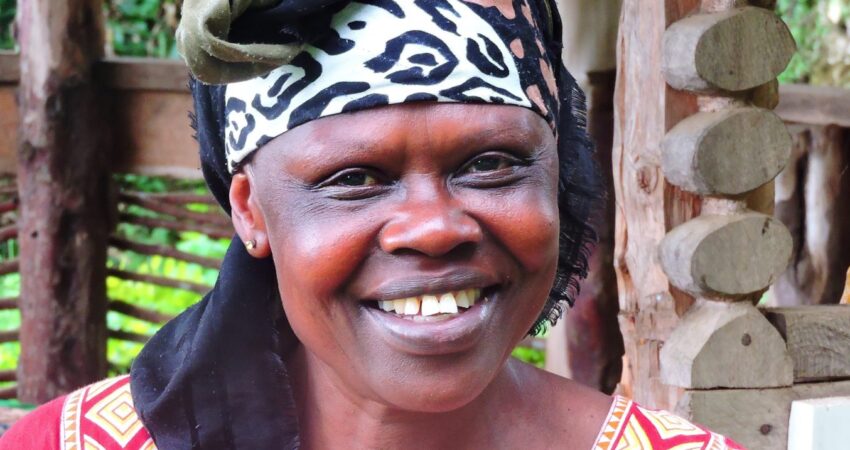MULALA CULTURAL TOUR

The slopes of Mount Meru offer a bit of magic for the tourist that is looking for a memorable excursion on a majestic African peak. A typical rural setting, the village of Mulala lies 1450 m above sea level on the southern slopes of Mount Meru and only 30 kilometers from Arusha.
Visitors wind their way up the mountain through a maze of lush, green vegetation dotted with small farms. The villagers are mostly subsistence farmers and grow coffee, bananas, vegetables, and fruits. They also keep livestock for milk and beef. When you arrive at Mama Anna’s cheese-making place, you will be warmly welcomed by the village women who will proudly show you their activities and offer you a glimpse of rural African life.
Ranging from cheese making to bread baking to a small store, the women have created projects which support their families and preserve their culture–all beneath the lush vegetation of Mount Meru. From Mama Anna’s, you’ll wind up and down the slopes of Mt Meru, experience the spectacular beauty of this unique area, and leave feeling you’ve discovered new friends. The women in Mulala have united themselves in the Agape women’s group. Through this group they try to support economic activities of the members and start new income generating projects, like the Mulala Cultural Tourism Programme. It is the only cultural tourism programme in Tanzania completely launched, developed, and implemented by women.
Marisha river tour: This 2 hours guided walk weaves you along the village foot trails, through the coffee and banana farms, and down to the scenic riverbanks of the Marisha River. Thick with tropical vegetation, various birds and primates, you can sit along the banks and be enveloped by the many wonders of the area. You may continue on to the Ziwa la Mzungu (Whiteman’s lake) where legend has it that a white man disappeared in the lake while fishing after being confused by demonic sounds coming from the water.
Lemeka Hill tour: Crisscross the coffee and banana farms and head up for Lemeka Hill for a breathtaking view of both Mt. Kilimanjaro and Mt. Meru. The scene is a visual patchwork of Maasai plains, small townships and surrounding hills. On the slopes of Lemeka Hill you can visit the farm of Mr. Moses Karoiya, the traditional healer in the village. He will tell some stories about the history of the Meru tribe, and provide extensive explanation on the traditional methods he uses to cure sick villagers. Once you’ve descended the hill, you can further delve into the Mt. Meru forest, head to the tranquil banks of the Marisha River or return to the point of origin, Mama Anna’s cheese making place. This trip takes about 2 hours.
Agape tour: In a 1,5 hours of guided walk you can visit the farms of all five members of the Agape women’s group. The women will give explanation about their farming methods and show you the various economic activities they have started, like cheese-making, bread-making, flower seed growing and chili growing.
FACILITIES: In Mulala the women have built a pleasant resting place where meals prepared by the women’s group can be served. A place for overnight camping is available at the women’s compound. From the first revenue a small bathroom will be built that can be used by the guests who spend the night at the farm.
GUIDES: The guides are mostly women who have lived for many years in Mulala. They speak some English, and can further use interpreters to tell interesting stories. In addition to the training in cheese-and-bread making, the women have undergone a tourism training program.
NOTE:
- Water is available for purchase
- Weather may prohibit walking tours
- Wear appropriate gear; good walking shoes
- Take a cap and sun cream with you when making longer walks.
DEVELOPMENTAL PROJECT:
With assistance from a Dutch development project called FAIDA
(Which means “profit”), many farmers in Mulala and surrounding villages have started new economic activities over the last few years. FAIDA provides farmers with technology support, like introducing biogas systems, and establishes linkages between farmers and purchasers. The local entrepreneurs can follow training courses at the FAIDA office, e.g. on bookkeeping and marketing, and can be assisted with business plans and loan applications. The members of the Agape women’s group have seen their income growing considerably, thanks to the support from FAIDA.
The profit from tourism they will use for investing in new economic activities. Further, the women will donate a part of the profit to the primary school in the village, since they consider good education as the key to the further development of their village.
